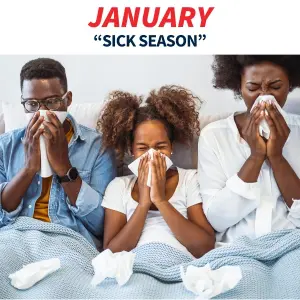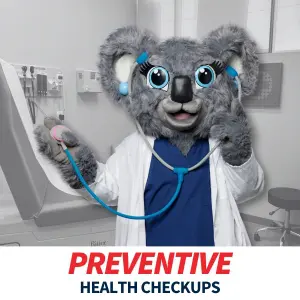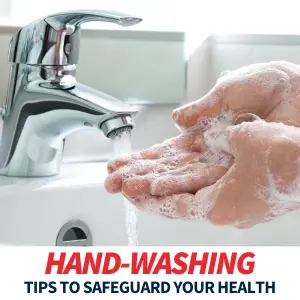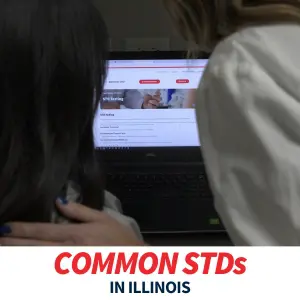Tips to Protect Against COVID-19
As the coronavirus pandemic continues and we wait for a vaccine, there has been no shortage of tips and tricks shared in an effort to prevent contracting and spreading the virus. However, some of these are using false or outdated information, so it’s important to follow those that have been proven to be effective. Although this virus is highly-contagious, there are ways you can protect yourself and others against COVID-19.
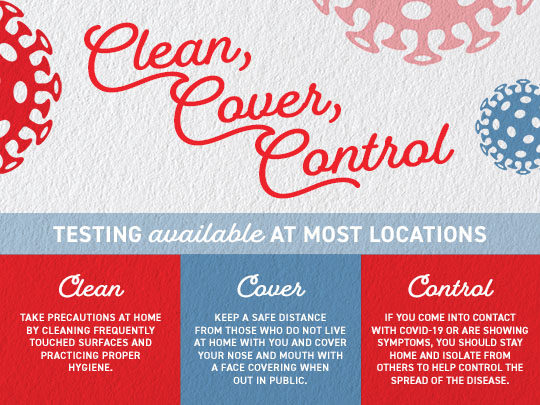
What We Know About How COVID-19 Spreads
The Centers for Disease Control and Prevention (CDC) has been closely monitoring the spread of COVID-19 to better understand how we can help control it. Because there is not yet a vaccine available, avoiding exposure to the virus is our best defense. We still have much to learn, but so far it’s been found that the coronavirus is spread mostly from person-to-person. Close contact allows it to spread easily through small respiratory droplets that are produced when an infected individual talks, coughs, or sneezes – even if they are asymptomatic. You can easily inhale these droplets or become infected if they land in your mouth or nose. While a brief interaction may not lead to infection, prolonged close contact increases your risk.
As with most viral infections, it is possible you could contract COVID-19 by simply touching a surface or object that has the virus on it, then touching your face. However, as of right now, this does not appear to be a main source of spread.
Protecting Yourself (and Others) in Public
Many tips to help control the spread of coronavirus are meant to not only protect yourself, but those around you, as well. Washing your hands often with soap and water for at least 20 seconds each time, or using hand sanitizer containing at least 60% alcohol, will help stop the spread of germs from your own hands to surfaces, or prevent you from contracting an illness from a surface you touched.
When you do go out in public, be sure you keep a distance of at least six feet from those who do not live at home with you. Along with social distancing, cover both your nose and mouth with a face covering or cloth mask. This is as much a protection measure for yourself as it is for others, as you could be a carrier of the virus and not be showing any symptoms. The only times cloth masks are not recommended are for children under the age of two, individuals who have trouble breathing, or someone who is unconscious, incapacitated, or unable to remove a mask without assistance.
While surgical masks and N95 respirators are highly-effective, the CDC does not recommend these be used by the general public as they are currently considered to be critical supplies reserved solely for healthcare workers and first responders.
Each day, monitor your own health and be on the lookout for potential symptoms. If you experience a fever, cough, shortness of breath, or other COVID-19 symptoms, do not go out in public and follow all CDC guidance to ensure you don’t spread it to others.
Precautions to Take at Home
Home should be considered a safe space, but there are still precautions you should take to ensure you or others living at your residence do not get sick. Of course, proper and frequent hand washing is always the best recommendation to stop the spread of germs. If anyone does become ill at home, avoid close contact as much as possible by maintaining at least a six foot distance. If possible, try to have the person quarantine in a separate room and use their own bathroom. Should they need frequent interaction, such as in the case of a child or person who requires your care, be sure to wear a mask when around them.
Anytime you feel the urge to cough or sneeze, cover your mouth and nose with a tissue or the inside of your elbow. Used tissues should be disposed of right away in the trash, and you should wash your hands immediately with soap and water for at least 20 seconds.
Frequently touched surfaces, such as doorknobs, tables, light switches, countertops, and faucets, should be cleaned and disinfected daily. Detergent or soap and water are best for cleaning these areas prior to using common household disinfectants.
Why Controlling the Spread is Important
While many people who are infected with the coronavirus will end up with only mild symptoms, it’s important to help contain the spread of the virus to protect others and prevent our healthcare system from becoming overwhelmed. Individuals who may be at higher risk of severe complications, such as those with heart or lung disease or diabetes, or older individuals, may not be able to access life-saving care if many individuals become critically ill at the same time. Because this virus is still new, doctors and scientists are also unsure of long-term implications from COVID-19 for those who have recovered, so doing everything you can to prevent contracting the illness is important.
Even if you or your family do not fall into a high-risk category, we must all do our part to help protect those around us.
What to Do if you have been Exposed or been Diagnosed with COVID-19
If you discover you have been exposed to a person who tested positive for COVID-19, or you are showing symptoms of the illness, contact your physician to determine if you should be tested. Most likely you will be able to recover at home without medical intervention by resting, staying hydrated, and taking medications like acetaminophen to help lessen symptoms. You should stay home unless you require medical care for worsening symptoms, and stay away from others. If you do need to interact, wear your mask and ensure others do the same – even in your own home.
Continue to monitor any symptoms and watch for emergency warning signs, including:
- Trouble breathing
- Persistent pain or pressure in the chest
- New confusion
- Inability to wake or stay awake
- Bluish lips or face
Should you or a loved one have any of these symptoms, call 911 immediately or contact your local emergency room to notify them a person with COVID-19 needs help right away.
Experiencing symptoms of COVID-19? Contact Midwest Express Clinic today to determine if you qualify for testing. We are offering swab testing and antibody testing at all of our locations. Be sure to call ahead prior to your visit to allow our team to take the proper safety precautions to protect themselves and others in the office. Let’s work together and help stop the spread of COVID-19.

